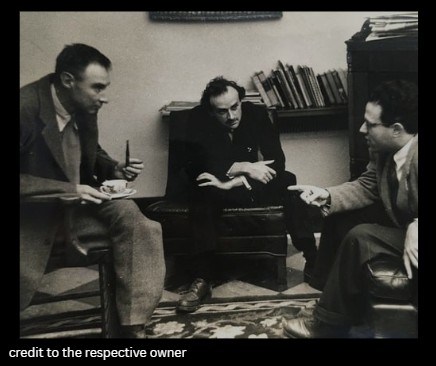When J. Robert Oppenheimer was studying at Göttingen, he immersed himself not only in theoretical physics but also in poetry and philosophy. His deep love for literature sometimes puzzled his colleagues—including the brilliant but famously concise Paul Dirac.
One day, Dirac reportedly said to him:
“Oppenheimer, I hear you are writing poetry. I don’t see how a man can work on the frontiers of physics and write poetry at the same time. They seem opposed. In science, you aim to say something nobody knew before, using words everyone can understand. In poetry, you’re bound to say something everybody already knows, but in words nobody can understand.”
While Dirac saw science and poetry as opposites, Oppenheimer believed otherwise. Throughout his life, he quoted Shakespeare, John Donne, and the Bhagavad Gita—even famously citing the latter after witnessing the first atomic bomb test: “Now I am become Death, the destroyer of worlds.”
Perhaps physics and poetry aren’t so different after all—both seek to uncover hidden truths about the universe, just expressed in different languages.
